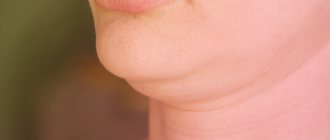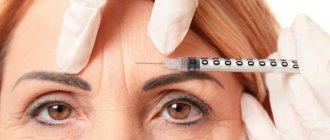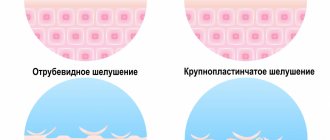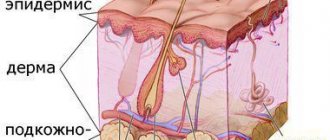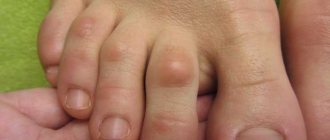With age, due to injuries or weight fluctuations, jowls and unaesthetic folds form in the middle part of the face, wrinkles appear, and the skin and fatty tissue sag under the influence of gravity. The presence of such defects reveals age, makes the face gloomy and, of course, negatively affects self-esteem.
To eliminate these changes, people turn to lifting sagging cheeks, which is possible using different methods: using check-lifting operations, SMAS lifting, and also the endoscopic method.
Types of cheek lift surgeries
Check-lifting is characterized by minimal trauma; during it, sagging cheeks, wrinkles and other defects are removed; can be combined with lower eyelid surgery. Advantages of the technique:
- minimum procedure time and number of incisions;
- natural result;
- long-term effect.
SMAS lifting is aimed not only at correcting skin defects, but also at strengthening the superficial muscle frame. During it, excess skin is removed, and then natural tension occurs, which ensures that facial expressions are preserved.
Endoscopic lifting of “jowls” on the face is an operation to move fat pads upward and position them above the cheekbones, resulting in a lift.
Indications for operations of all types:
- ptosis of tissues in the middle part of the face;
- “bags” in the cheekbones and under the eyes;
- age-related changes;
- failed surgeries in the past;
- sagging skin in the middle part of the face;
- patient dissatisfaction with the appearance of the cheeks.
Why do such violations occur at all?
A cheek lift or correction of the contour of the cheekbones is usually required when these changes are a consequence of age-related visual changes or congenital features of appearance. Sagging cheeks and a swollen cheekbone that has lost its definition make the face haggard and ugly. Chubby cheeks also rob it of grace due to its unsightly contour and fullness.
Roundness can be caused by problems with excess weight, swelling and, as mentioned earlier, structural features of the skull. The reason for sagging soft tissues is that over time they lose their elasticity. The internal connective tissue frame weakens, which fixes them in their usual place, attaching them to a solid bone base. Age-related changes also lead to loss of water, without which the skin and soft tissues become less elastic. And what is even more important, over time, the activity of production of collagen by skin cells, the main structural protein, whose fibers form this “reinforcing frame”, decreases over time.
All these factors reduce the ability of the skin and subcutaneous tissue to resist the constant action of gravity. After some time, the cheeks sag, and the line of the cheekbones loses definition - so much so that it becomes visually noticeable and radically changes a person’s appearance.
Description of operations
- Check-lifting is often performed under local anesthesia, but general anesthesia is also used (at the patient’s request). Duration – from 40 to 90 minutes. Small incisions are made along the edge of the lower eyelid (in the inconspicuous area under the eyelashes), through which endotins, thin plates containing hyaluronic acid, are introduced under the skin. During the resorption of these plates, gradual tightening of the skin occurs.
- SMAS lifting is performed under general anesthesia. Duration – 1-2 hours. During the procedure, an incision is made along the hairline from the temple to the ear. Flaps of skin and the muscular aponeurotic system are fixed without tension, and its excess is excised. There are no visible scars left after the intervention.
- Endoscopic lifting is performed primarily under local anesthesia with deep sedation. General anesthesia may be used. Duration – 1-2 hours. Manipulations are performed through micro incisions in the hair growth area and on the inside of the mouth. During the operation, the fat pads of the “jowls” are moved upward and fixed above the cheekbones.
Rehabilitation after jowl removal
Over the course of 7-14 days, hematomas and swelling may be observed, which resolve on their own.
If self-absorbable suture material was not used, the sutures are removed after 7-10 days.
If painful sensations occur, the doctor will prescribe medications to relieve them.
The entire rehabilitation period lasts 2-3 weeks. To reduce it and improve the patient’s well-being, additional cosmetic procedures, for example, mesotherapy, may be prescribed.
For a month after surgery, you should avoid physical activity and sudden movements.
Cheek lift with threads
Reinforcing the cheeks with threads is an excellent method, the effect of which, with the correct choice of threads, lasts from 2 to 5 years. At Platinental we use more than 40 types of threads - different for different types of faces and areas of the face (eyebrows, cheeks, corners of the lips, lower jaw line, neck, chin, etc.).
In some cases, smooth threads are the best choice, in others - threads with cones and serifs. The most popular are Intemporel threads, Silhouette threads, Happy Lift, APTOS and iGuide.
Expert comment:
“At Platinental we offer a unique service: drawing up a personal thread lifting card.
Send your “face” photo through the Platinental application or by e-mail. A plastic surgeon will create a personal thread lifting card for you free of charge - the optimal set of threads to solve the problems of your face.
It is difficult to exaggerate the importance of the correct selection of threads, which will be special in each case. Having experience and knowledge, we choose from a huge number of options exactly those that are necessary in your case.
It is the correct selection of threads, as experience shows, that is half the success.”
Vasiliev Maxim, plastic surgeon.
In addition to the thread lifting itself, we at Platinental very successfully practice a combination of threads and other techniques, for example, mesotherapy or collagen injections.
An excellent effect is also obtained by impregnating the threads with Epidermal Growth Factor or Melsmon before installation. They stimulate increased collagen production immediately after the installation of the threads and thereby significantly prolong the effect obtained from the thread lift.
It is important that thread lifting, although it is a surgical operation, is carried out quickly, does not require anesthesia, and rehabilitation after the procedure takes only 2 to 4 days.
How to prepare for surgery?
Once the date of the operation is set, you will be given a list of necessary tests, and you will also need consultations with a general practitioner and an anesthesiologist. On the recommendation of your doctor, you can prepare the skin using modern hardware techniques - for example, Endosphere Therapy. By influencing the deep layers of the skin, the device improves the circulation of lymph and skin, which will subsequently have a beneficial effect on the rehabilitation process after jowl removal.
How much does jowl removal surgery cost?
The cost of surgery in our clinic is from 195,300 rubles. The exact cost will depend on the desired result and will be clarified during a consultation with a plastic surgeon. Our call center specialists will be happy to help you make an appointment by phone (812) 320-70-00
.
Photos before and after jowl removal
More examples can be found in the VKontakte and Instagram accounts of the Pirogov Clinic and our plastic surgeons
How is jowl removal surgery performed?
SMAS lifting is performed under general anesthesia, the operation lasts 3 hours. After the operation, the patient spends one day in a comfortable room at our clinic under the supervision of specialists.
Recovery period:
- you spend one day in a comfortable hospital;
- on the sixth day the stitches are removed;
- The general recovery period lasts several weeks. At this time, it is important to follow your doctor's recommendations and take the medications prescribed by him.
Result:
- a fresh, tightened oval of the face has been formed in the lower third of the face;
- the effect of a sad face disappears;
- wrinkles and folds in the lower third of the face are smoothed out.
The results of jowl removal surgery last for 10 to 15 years, and you look much younger than your age.
To achieve the best effect, other aesthetic interventions on the face can be performed simultaneously, for example, platysmoplasty (neck lift).
Types of plastic surgery on cheekbones
January 07, 2020
Both sculpture and painting
In terms of popularity, plastic surgery of the cheekbones can hardly be considered one of the leaders in the general list of services provided by plastic surgery specialists. However, the Beauty Doctor clinic has accumulated quite a lot of experience in this area.
When and to whom is such an operation indicated? The need for it arises when there is facial asymmetry, including that which appears after an injury; with loss of cheek volume due to age-related changes; when a person has too wide, or, on the contrary, very sunken cheekbones; if there are congenital or acquired defects.
In the Beauty Doctor blade, cheekbone correction is often combined with a forehead lift, eyelid lift, and other operations to improve and rejuvenate one’s appearance.
Experts also call plastic surgery of the cheekbones malarplasty (from the Latin mala - cheek). This term is reminiscent of the German word maler - artist, painter. And if you consider that one of the types of cheekbone correction is called liposculpture (more on that a little later), then a plastic surgeon can truly rightfully be called a sculptor, an artist.
A little about implants
The path to this plastic surgery, like any other, begins with a mandatory consultation, during which the patient and the doctor discuss the expected result from the correction.
In addition, during such a conversation, the doctor finds out whether the patient has any allergic reactions or contraindications to plastic surgery of the cheekbones. The latter include blood and heart diseases, mental illness, and immunodeficiency. If you smoke, your doctor may ask you to abstain from smoking the night before your procedure.
This is followed by computer modeling - a new face of the patient is “drawn” on the monitor. As soon as the “high negotiating parties” reach a consensus, the patient’s measurements are taken according to which individual implants will be ordered - if we are talking about plastic surgery to enlarge the cheekbones.
For a long time, when performing such facial correction, doctors used human bone. But it is extremely difficult to give it the desired shape. There is another method - the same liposculpture - when cheekbones are built up by transplanting the patient’s own fat tissue. However, there is a risk of resulting in facial asymmetry, since the transplanted tissue may not take root completely.
As a result, most modern clinics chose the optimal option – the use of implants. The ideal material for them is solid silicone, and it is possible to use both standard implants and those made individually for a specific patient.
In addition to silicone, the modern material Porex has become widespread in the manufacture of implants. Plastic surgery of the cheekbones using such a prosthesis, firstly, guarantees a lifelong result, secondly, it is as safe as possible, and, finally, “new” cheekbones are completely indistinguishable from natural ones.
What is also important is that correction with the use of implants allows for tightening of the skin of the middle and lower third of the face, rejuvenating it as a whole.
Scars will not be noticeable
There are two types of access when performing surgery to enlarge and change the shape of the cheekbones: through the oral cavity or through an incision along the edge of the lower eyelid. In the second case, cheekbone augmentation can be combined with blepharoplasty (eyelid surgery), which gives an excellent rejuvenating effect. In our clinic, plastic surgery of the cheekbones is also often combined with a facelift (facelift).
The cheekbone augmentation procedure lasts about two hours, during which the patient is fully conscious as local anesthesia is applied.
Plastic surgery to reduce cheekbones looks more complicated: bone tissue has to be removed using active grinding; this is a rather difficult procedure; it is performed under general anesthesia.
In any case, the stitches after the operation will not be noticeable to others even with a very close look.
After operation
If your work does not involve heavy physical exertion, you can return to it within 24 hours after surgery. True, while the anesthetics are working, you should not rush to get behind the wheel and for some time it is better to avoid visiting the bathhouse, solarium, and performing any serious cosmetic procedures.
During the recovery period after plastic surgery of the cheekbones, compaction may be felt in the cheek area. This is a normal phenomenon and disappears without a trace over time. If pain occurs or the implants change their position, rush to see your doctor.
However, your personal “sculptor-painter” will tell you in detail about all this upon discharge.
Author: Dudnik A.P.
Share
What is cheek plasty
Facial liposuction gives excellent results in shaping the contour of the neck and chin, but this is far from the best method of dealing with excessively chubby cheeks. That is why today, removing Bisha's lumps is the simplest and most effective way to remove cheeks surgically. As a result of this intervention, the cheeks “lose” their volume, and the oval of the face acquires more “chiseled” contours.
Bisha's lumps are purely an aesthetic problem and do not require mandatory removal. These fat formations do not perform any vital functions, so you can quite easily get rid of them and thus correct the shape of your face and cheekbones.
However, if Bisha's lumps are significant in size and cause you insurmountable psychological discomfort, they can be reduced, moved (for example, to the cheekbone area, to create greater relief, while also reducing the volume of the cheeks) or removed completely if:
- there is excess fat on the cheeks,
- the volume of fat formations further emphasizes the round shape of the face,
- with age, “jowls” (sagging skin) formed and nasolabial folds deepened,
- There are also many other subjective reasons for cheek surgery, called aesthetic ones.





